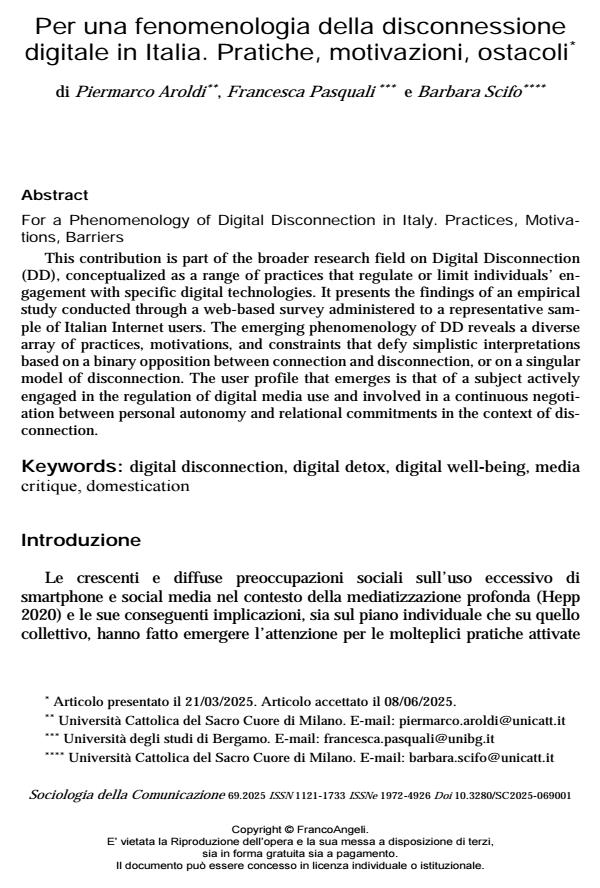Per una fenomenologia della disconnessione digitale in Italia. Pratiche, motivazioni, ostacoli
Titolo Rivista SOCIOLOGIA DELLA COMUNICAZIONE
Autori/Curatori Piermarco Aroldi, Francesca Pasquali, Barbara Scifo
Anno di pubblicazione 2025 Fascicolo 2025/69
Lingua Italiano Numero pagine 25 P. 5-29 Dimensione file 270 KB
DOI 10.3280/SC2025-069001
Il DOI è il codice a barre della proprietà intellettuale: per saperne di più
clicca qui
Qui sotto puoi vedere in anteprima la prima pagina di questo articolo.
Se questo articolo ti interessa, lo puoi acquistare (e scaricare in formato pdf) seguendo le facili indicazioni per acquistare il download credit. Acquista Download Credits per scaricare questo Articolo in formato PDF

FrancoAngeli è membro della Publishers International Linking Association, Inc (PILA), associazione indipendente e non profit per facilitare (attraverso i servizi tecnologici implementati da CrossRef.org) l’accesso degli studiosi ai contenuti digitali nelle pubblicazioni professionali e scientifiche.
This contribution is part of the broader research field on Digital Disconnection (DD), conceptualized as a range of practices that regulate or limit individuals’ engagement with specific digital technologies. It presents the findings of an empirical study conducted through a web-based survey administered to a representative sample of Italian Internet users. The emerging phenomenology of DD reveals a diverse array of practices, motivations, and constraints that defy simplistic interpretations based on a binary opposition between connection and disconnection, or on a singular model of disconnection. The user profile that emerges is that of a subject actively engaged in the regulation of digital media use and involved in a continuous negotiation between personal autonomy and relational commitments in the context of disconnection.
Parole chiave:digital disconnection, digital detox, digital well-being, media critique, domestication
Piermarco Aroldi, Francesca Pasquali, Barbara Scifo, Per una fenomenologia della disconnessione digitale in Italia. Pratiche, motivazioni, ostacoli in "SOCIOLOGIA DELLA COMUNICAZIONE " 69/2025, pp 5-29, DOI: 10.3280/SC2025-069001